Commercial HVAC Brymbo
Find top Industrial HVAC in Brymbo
Receive up to 3 Commercial HVAC quotes for your project today! Compare profiles, reviews, accreditations, portfolio, etc... and choose the best offer.
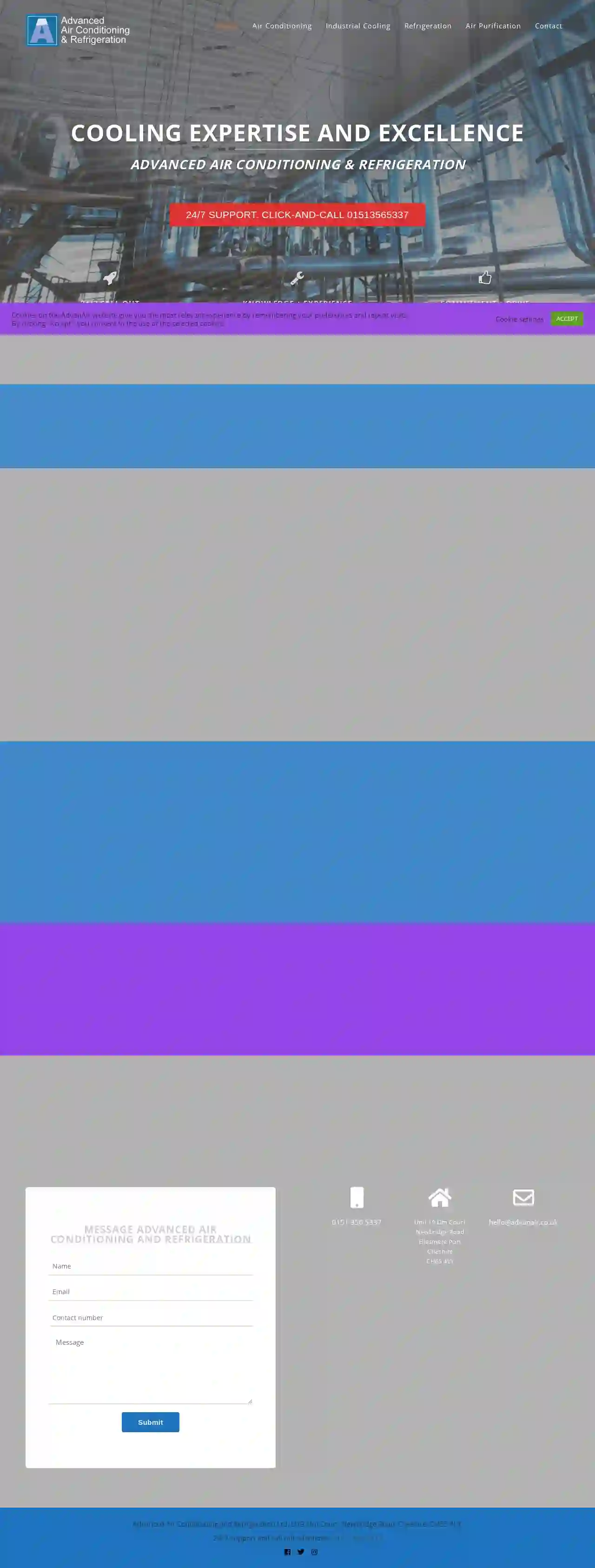
Advanced Air Conditioning & Refrigeration Ltd
Newbridge Road, Unit 19 Elm Court, Ellesmere Port, CH65 4LY, GBEstablished in 2000, Advanced Air Conditioning & Refrigeration Limited is at the forefront of the service, installation and maintenance of chilled water systems, air conditioning and industrial refrigeration systems. The company has successfully implemented many varied projects for large and small companies throughout the UK & Ireland, combining competent engineering with first class service, ensuring that the project is completed on time and within budget. Contact Advanced Air Conditioning & Refrigeration for all your industrial and commercial cooling requirements. Enhance your organisation's anti-Covid health and safety risk assessment expectations by implementing UV-based air and surface sanitisation
- Services
- Why Us?
- Gallery
Get Quote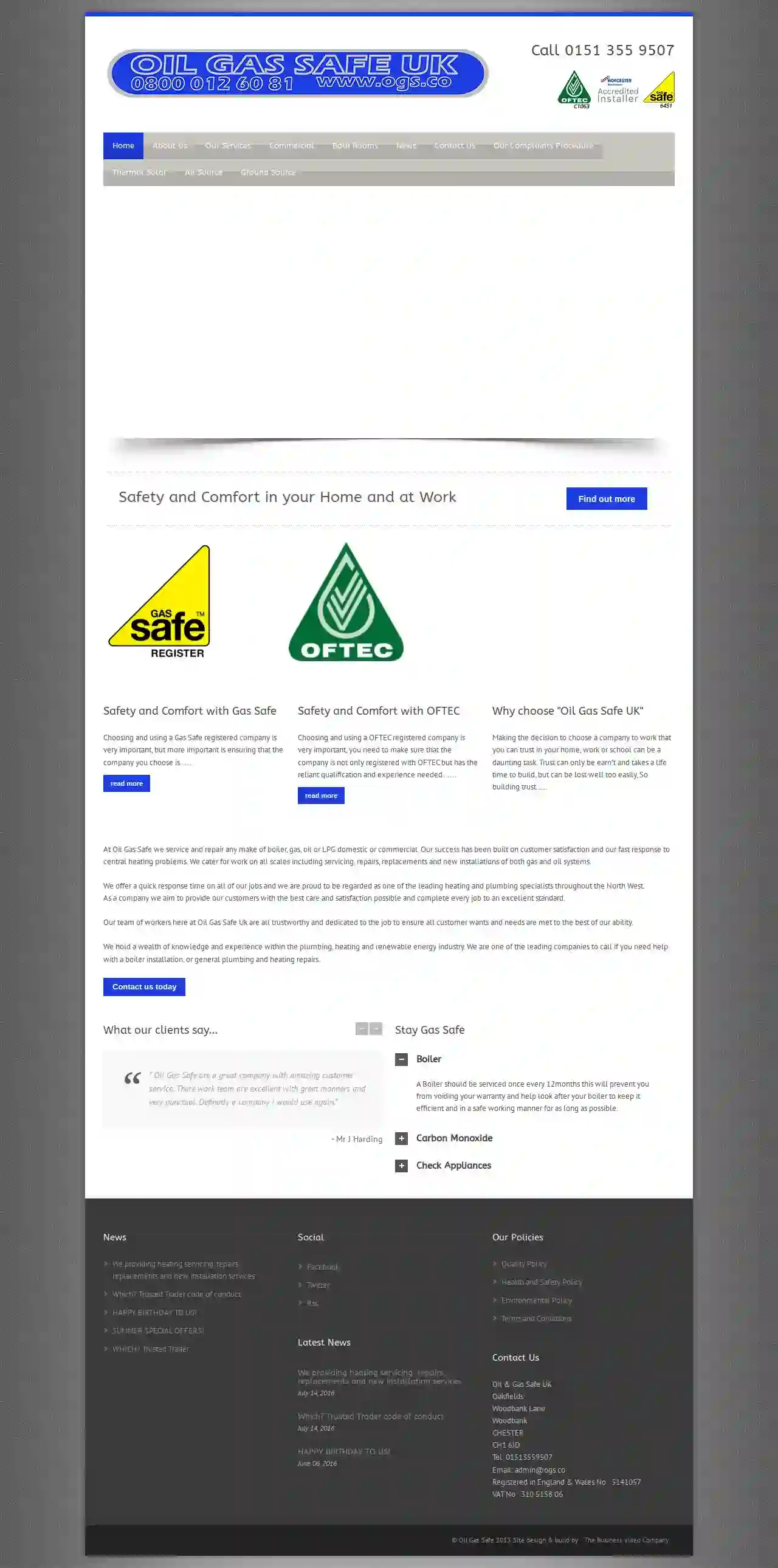
Oil Gas Safe
52 reviewsWoodbank Lane, Woodbank, Oakfields, Chester, CH1 6JD, GBWe are an accredited installer of Worcester Bosch heating systems. The mark leader in heating and hot water systems. Save up to 60%. Solar domestic water systems can generate between 50% - 60% of your hot water using radiation from the sun. Welcome to our new web site. Safety and Comfort in your Home and at Work. Find out more. Safety and Comfort with Gas Safe. Choosing and using a Gas Safe registered company is very important, but more important is ensuring that the company you choose is... read more. Safety and Comfort with OFTEC. Choosing and using a OFTEC registered company is very important, you need to make sure that the company is not only registered with OFTEC but has the reliant qualification and experience needed...... At Oil Gas Safe we service and repair any make of boiler, gas, oil or LPG domestic or commercial. Our success has been built on customer satisfaction and our fast response to central heating problems. We cater for work on all scales including servicing, repairs, replacements and new installations of both gas and oil systems. We offer a quick response time on all of our jobs and we are proud to be regarded as one of the leading heating and plumbing specialists throughout the North West. As a company we aim to provide our customers with the best care and satisfaction possible and complete every job to an excellent standard. Our team of workers here at Oil Gas Safe Uk are all trustworthy and dedicated to the job to ensure all customer wants and needs are met to the best of our ability. We hold a wealth of knowledge and experience within the plumbing, heating and renewable energy industry. We are one of the leading companies to call if you need help with a boiler installation, or general plumbing and heating repairs. Contact us today. What our clients say... Oil Gas Safe are a great company with amazing customer service. There work team are excellent with great manners and very punctual. Definatly a company i would use again. - Mr J Harding. My boiler is serviced every year by Oil Gas Safe. They are a brilliant work force who are polite and hard working and deleiver excellent customer care throughout the job. - Sarah Robbinson. Oil gas safe repaired my boiler as the fan had stopped working,they were quick to do the job and provided a great service. Great company to have work with.
- Services
- Why Us?
- Accreditations
- Testimonials
- Gallery
Get Quote
Frye's Refrigeration and HVAC
56 reviewsinsert address line 1 here, insert address line 2 here, insert street address here, Winchester, insert post code here, GBAt Frye's Refrigeration and HVAC, we take immense pride in our track record of providing exceptional local service since 2016. When it comes to your HVAC and refrigeration needs, we have built a solid reputation as a trusted and reliable partner in our community. With our extensive experience and expertise, we are dedicated to delivering top-notch solutions that ensure your comfort and satisfaction. Our friendly and knowledgeable team is here to answer your questions, provide expert guidance, and schedule appointments at your convenience. Let us be your trusted partner in creating a comfortable and efficient environment for your home or business.
- Services
- Why Us?
- Accreditations
- Our Team
- Testimonials
- Gallery
Get Quote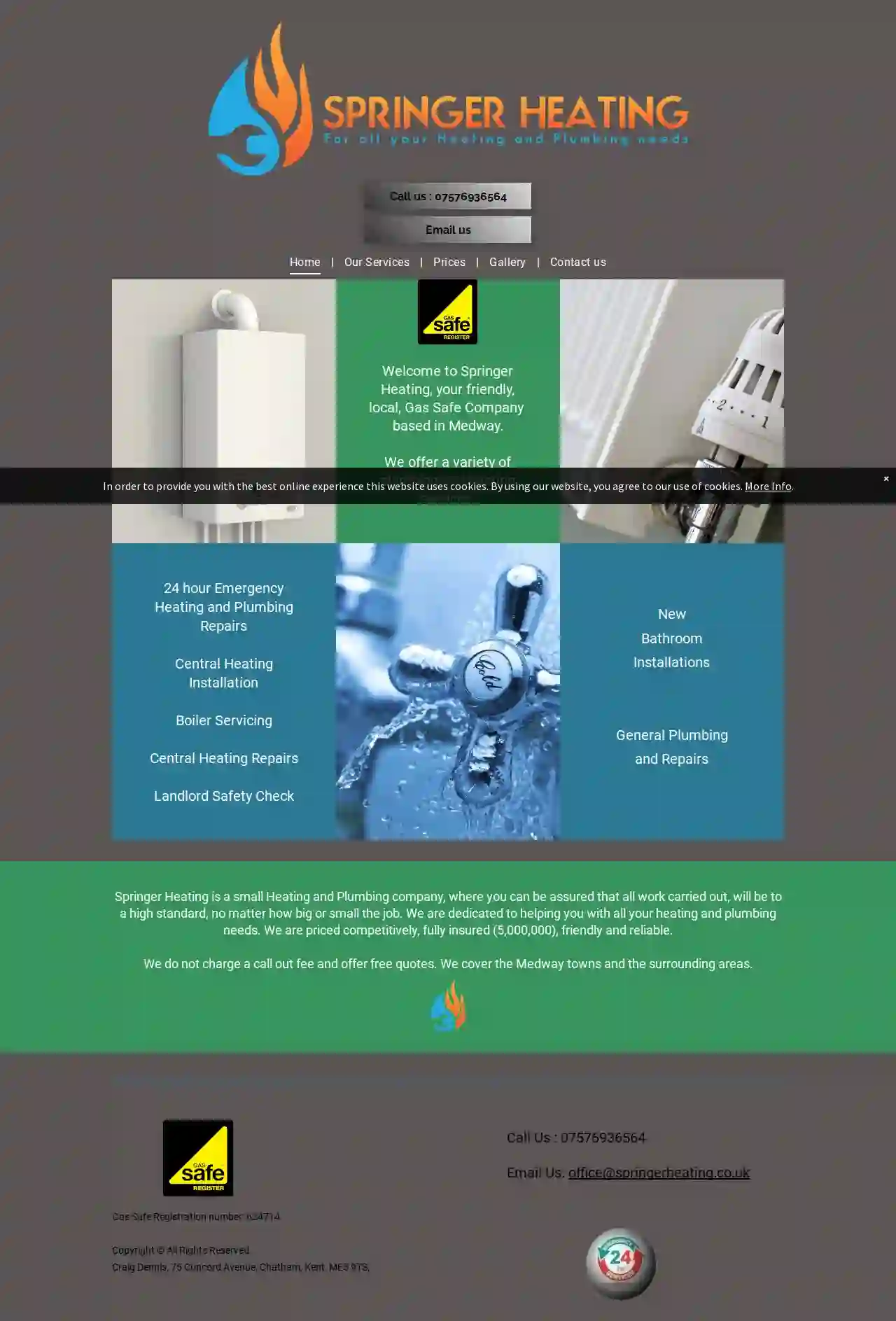
Springer Heating
75 Concord Avenue, Chatham, ME5 9TS, GBSpringer Heating is a small, friendly, and reliable Heating and Plumbing company based in Medway. We are Gas Safe registered, ensuring all work is carried out to the highest standard, no matter how big or small. We pride ourselves on providing affordable prices, free quotes, and a commitment to meeting all your heating and plumbing needs. We cover the Medway towns and surrounding areas, offering 24-hour emergency services for your peace of mind.
- Services
- Why Us?
- Accreditations
- Gallery
Get Quote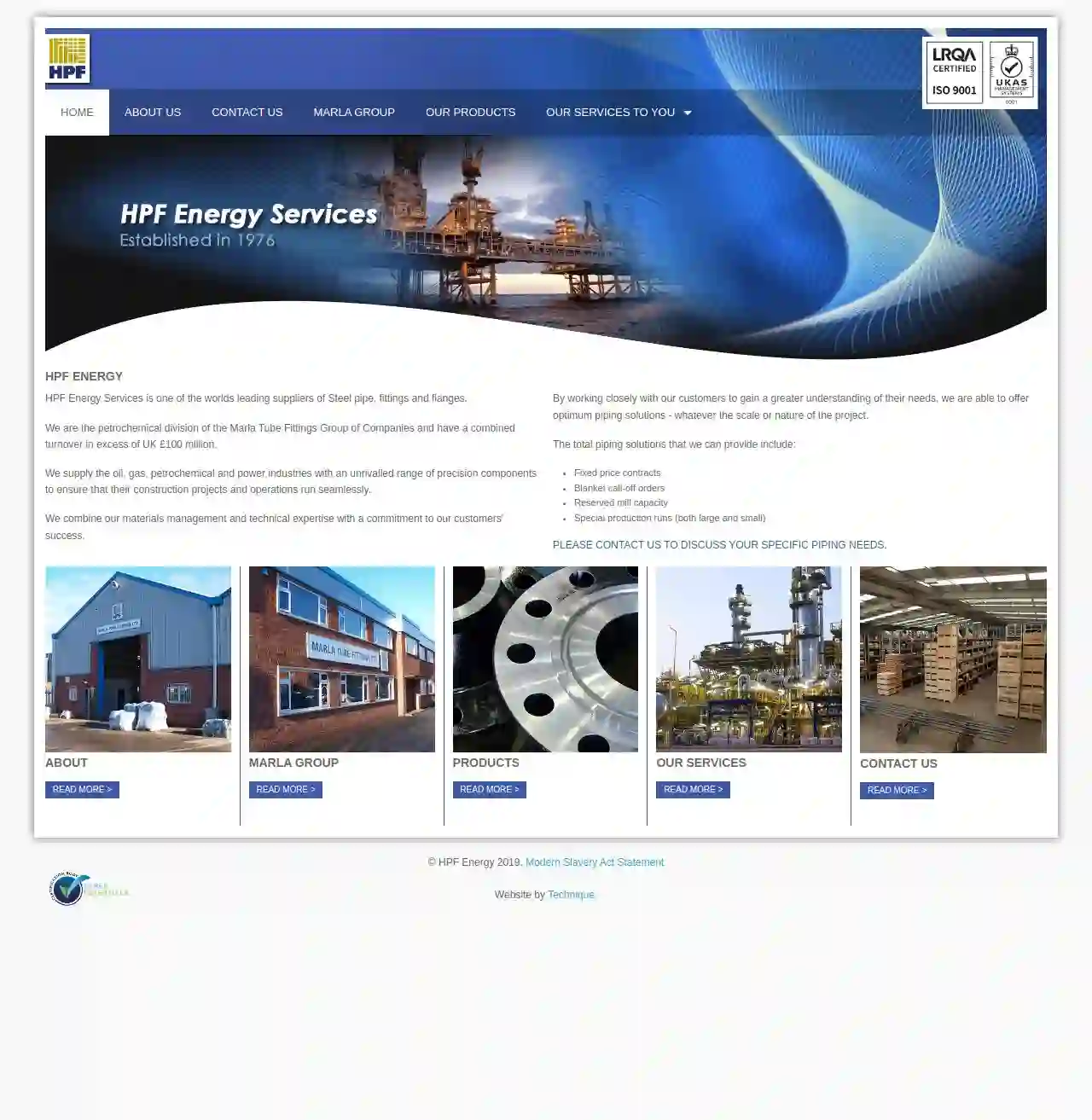
HPF Energy Services
4.33 reviewsChester, GBHPF Energy Services is one of the world's leading suppliers of Steel pipe, fittings and flanges. We are the petrochemical division of the Marla Tube Fittings Group of Companies and have a combined turnover in excess of UK £100 million. We supply the oil, gas, petrochemical and power industries with an unrivalled range of precision components to ensure that their construction projects and operations run seamlessly. We combine our materials management and technical expertise with a commitment to our customers' success. By working closely with our customers to gain a greater understanding of their needs, we are able to offer optimum piping solutions - whatever the scale or nature of the project. The total piping solutions that we can provide include: Fixed price contracts Blanket call-off orders Reserved mill capacity Special production runs (both large and small) Please contact us to discuss your specific piping needs.
- Services
- Why Us?
- Gallery
Get Quote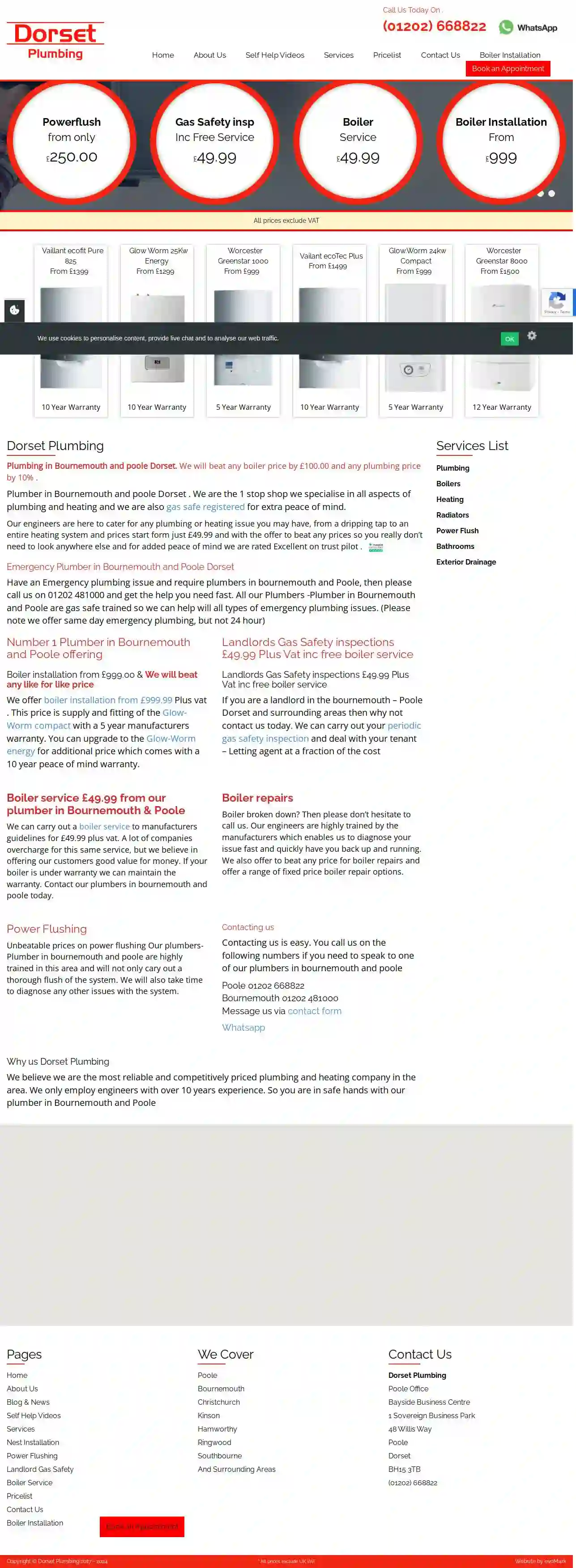
Dorset Plumbing
4.5133 reviews1 Sovereign Business Park, 48 Willis Way, Poole, GBDorset Plumbing is a plumbing and heating company based in Bournemouth and Poole, Dorset. We specialise in all aspects of plumbing and heating and are Gas Safe registered for extra peace of mind. Our engineers are here to cater for any plumbing or heating issue you may have, from a dripping tap to an entire heating system. Prices start from just £49.99 and we offer to beat any prices, so you really don’t need to look anywhere else. We are rated Excellent on Trust Pilot and offer same day emergency plumbing, but not 24 hour. We cover Poole, Bournemouth, Christchurch, Kinson, Hamworthy, Ringwood, Southbourne, and surrounding areas.
- Services
- Why Us?
- Gallery
Get Quote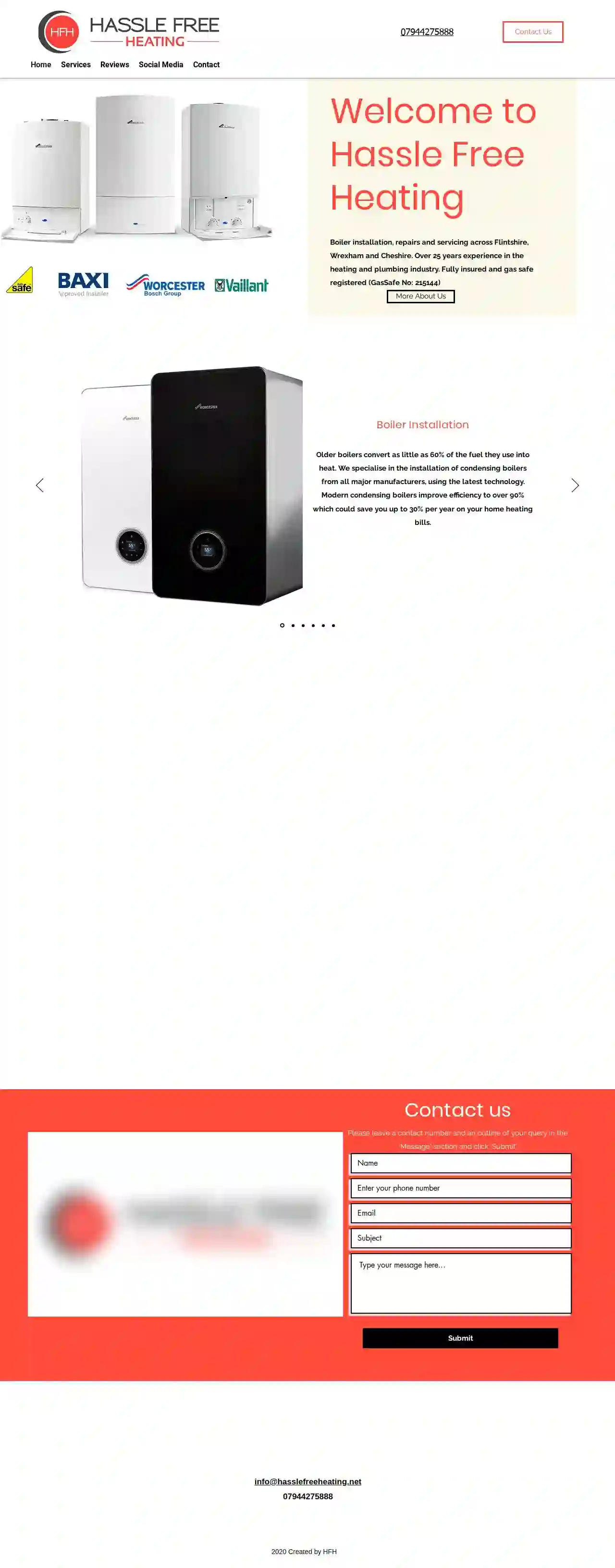
Hassle Free Heating
4.730 reviewsFlint, GBWelcome to Hassle Free Heating. We are a team of experienced heating engineers providing boiler installation, repairs and servicing across Flintshire, Wrexham and Cheshire. With over 25 years in the heating and plumbing industry, we are fully insured and gas safe registered (GasSafe No: 215144). We specialise in the installation of condensing boilers from all major manufacturers, using the latest technology. Modern condensing boilers improve efficiency to over 90% which could save you up to 30% per year on your home heating bills.
- Services
- Why Us?
- Gallery
Get Quote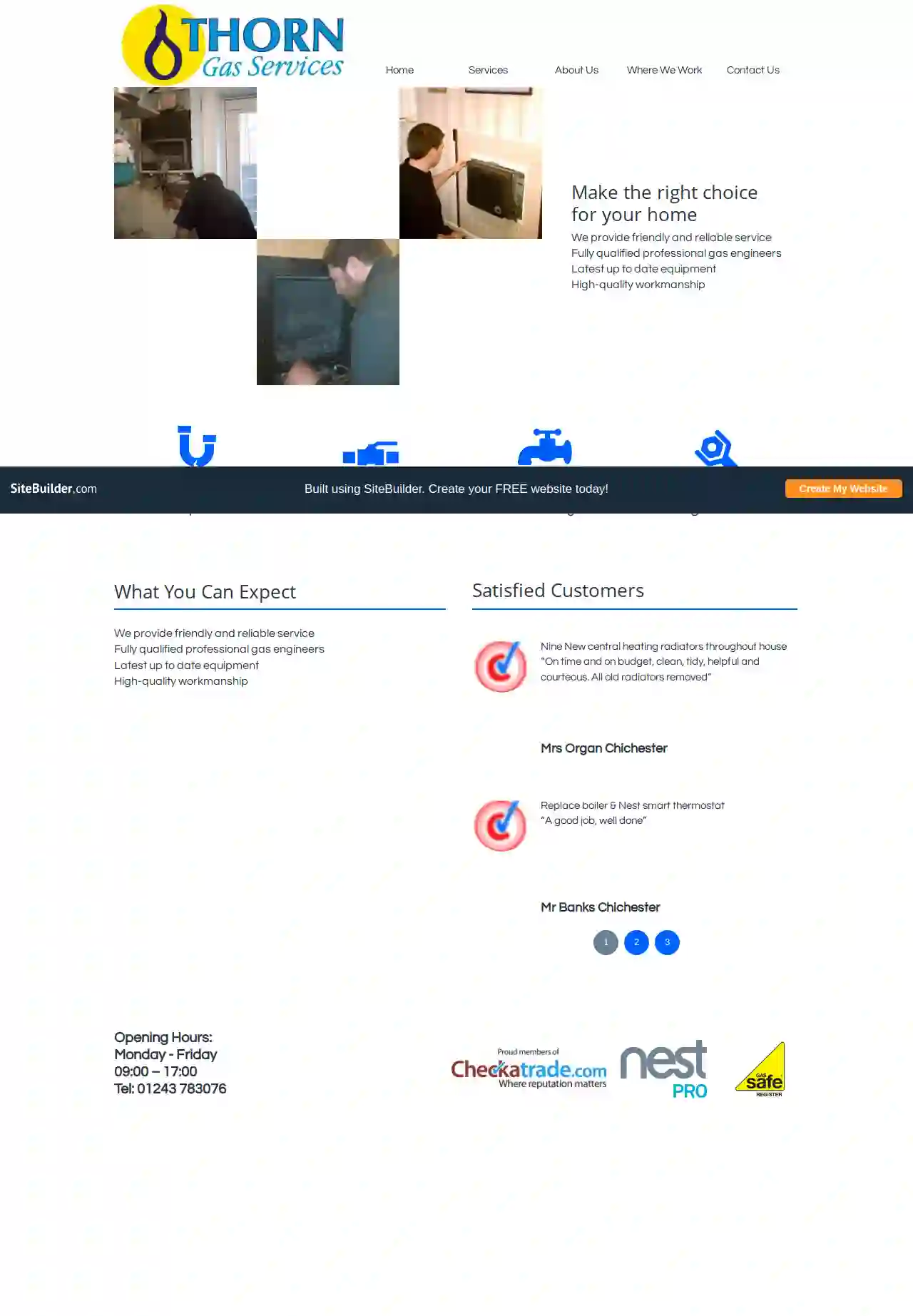
Thorn Gas Services Limited
44 reviewsChester, GBTGS Legal is a full-service law firm dedicated to providing exceptional legal representation to individuals and businesses in a wide range of practice areas. Our team of experienced attorneys is committed to delivering personalized attention, strategic counsel, and unwavering advocacy to achieve the best possible outcomes for our clients. We understand that legal matters can be complex and stressful, and we strive to make the process as smooth and efficient as possible. With a proven track record of success, TGS Legal is your trusted partner for all your legal needs. Our firm's mission is to provide high-quality legal services with integrity, compassion, and a commitment to excellence. We believe in building strong relationships with our clients based on trust, transparency, and open communication. We are dedicated to staying abreast of the latest legal developments and trends to ensure that our clients receive the most effective and up-to-date legal advice. At TGS Legal, we are proud of our team of talented attorneys who bring a wealth of experience and expertise to our firm. Our attorneys are passionate about their work and are committed to providing exceptional client service. We are confident that our team's dedication and expertise will make a positive difference in your legal matters.
- Services
- Why Us?
Get Quote
MAXGAS Boiler Services
4.942 reviews48 Foxholes Road, Poole, BH15 3NB, GBMAXGAS Boiler Services is a friendly family-run business providing high-quality boiler services to customers throughout Bournemouth, Poole, and Christchurch. With over 10 years of experience in the plumbing and heating industry and 25+ years in HVAC and construction, our team of experts is Gas Safe registered, BAXI approved installers, and qualified by City and Guilds. We offer free quotes and site surveys, and our motto is 'big enough to cope, small enough to care'. We understand the importance of having a reliable boiler, especially in the winter months, and we're always happy to answer any questions you may have.
- Services
- Why Us?
- Accreditations
- Our Team
- Testimonials
- Gallery
Get Quote
SKI HVAC LLC
524 reviewsEaston, 21601, GBSKI HVAC is your one-stop shop for all your heating, ventilation, and air conditioning needs. We pride ourselves on providing quality HVAC technicians who are kind, intelligent, and comforting. Whether you need a maintenance check-up or an emergency repair, we're here to help. Our team of skilled technicians will ensure your equipment is working at its maximum capacity. Join our maintenance program today and avoid costly repairs down the road. We offer comprehensive check-ups before the hot summer and frigid winter to keep your system running smoothly. Contact us today for a free estimate and let SKI HVAC take care of all your HVAC needs!
- Services
- Why Us?
- Our Team
- Gallery
Get Quote
Over 12,692+ HVAC Contractors in our network
Our HVAC contractors operate in Brymbo and beyond!
HVACCompaniesHub has curated and vetted Top HVAC Companies arround Brymbo. Find the most trustworthy pro today.
Frequently Asked Questions about Commercial HVAC
- Basic Plan: Typically includes routine inspections, filter changes, and basic cleaning.
- Comprehensive Plan: Covers more extensive inspections, cleaning, and minor repairs.
- Custom Plan: Tailored specifically to meet the needs of your HVAC system and building.
What is an Energy Management System (EMS)?
What is a Building Automation System (BAS)?
What are the different types of commercial HVAC maintenance plans?
What is a packaged HVAC unit?
What is an Energy Management System (EMS)?
What is a Building Automation System (BAS)?
What are the different types of commercial HVAC maintenance plans?
- Basic Plan: Typically includes routine inspections, filter changes, and basic cleaning.
- Comprehensive Plan: Covers more extensive inspections, cleaning, and minor repairs.
- Custom Plan: Designed specifically to meet the needs of your HVAC system and business.